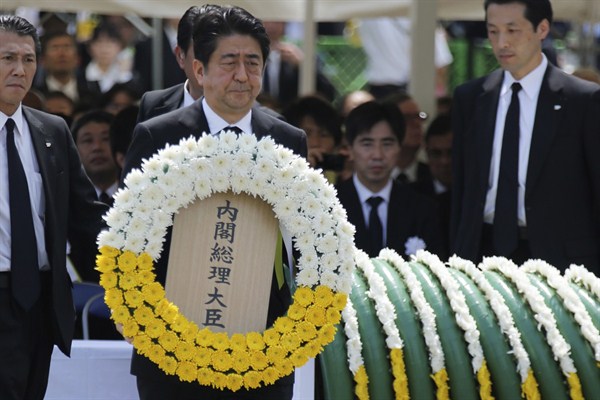Almost 70 years to the day after the U.S. bombing of Hiroshima and Nagasaki, and four and a half years after suspending its entire nuclear energy program, Japan restarted a nuclear reactor today, the first to operate under new safety requirements adopted in the aftermath of the Fukushima disaster. While the news is noteworthy in and of itself, Japan’s historical approach to its civil nuclear program, as well as to nuclear weapons in particular, is especially instructive in light of the Iran nuclear deal.
Many observers have suggested over the years that Iran could well aspire to the so-called Japan option: an advanced civilian nuclear program that is technically capable of crossing the nuclear weapons threshold, but constrained by both domestic and international prohibitions on any weapons-related activities. If this is indeed the case, Iran, like Japan of the postwar generation, will need to accept long-term exceptional restrictions on its program if it wishes to build trust and reshape its security relationships.
Japan experts generally concur that there is no serious chance that Tokyo will rethink its nuclear weapons status, despite occasional voices suggesting that Japan should assume more responsibility for its national security, including by taking this ultimate strategic step. This intermittent national debate is triggered by divergent threat perceptions between Japan and its American ally over China’s rise; concerns about the deadlocked process to denuclearize North Korea; and more general concerns about the reliability of U.S. security guarantees, including extended nuclear deterrence. At present, the alliance is strong; extended deterrence has not eroded; and Japan is moving gradually to demonstrate more military capacity through conventional means and through its willingness to contribute to multilateral operations in various regional hot spots.

